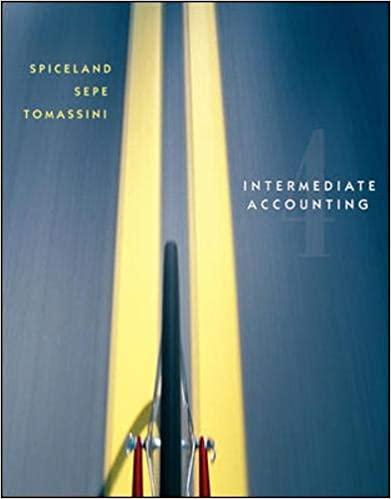Question
Drew Castello, general manager of Sunflower Manufacturing, was frustrated. He wanted the budgeted results, and his staff was not getting them to him fast enough.
Drew Castello, general manager of Sunflower Manufacturing, was frustrated. He wanted the budgeted results, and his staff was not getting them to him fast enough. Drew decided to pay a visit to the accounting office, where Jeff Hollingsworth was supposed to be working on the reports. Jeff had recently been hired to update the accounting system and speed up the reporting process.
"What's taking so long?" Drew asked. "When am I going to get the variance reports?" Jeff sighed and attempted to explain the problem. "Some of the variances appear to be way off. We either have a serious problem in production, or there is an error in the spreadsheet. I want to recheck the spreadsheet before I distribute the report." Drew pulled up a chair, and the two men went through the spreadsheet together. The formulas in the spreadsheet were correct and showed a large unfavorable direct labor efficiency variance. It was time for Drew and Jeff to do some investigating.
After looking at the time records, Jeff pointed out that it was unusual that every employee in the production area recorded exactly eight hours each day in direct labor. Did they not take breaks? Was no one ever five minutes late getting back from lunch? What about cleanup time between jobs or at the end of the day?
Drew began to observe the production laborers and noticed several disturbing items. One employee was routinely late for work, but his time card always showed him clocked in on time. Another employee took 10 to 15minute breaks every hour, averaging about 112 hours each day, but still reported eight hours of direct labor each day. Yet another employee often took an extra 30 minutes for lunch, but his time card showed him clocked in on time. No one in the production area ever reported any "down time" when they were not working on a specific job, even though they all took breaks and completed other tasks such as doing cleanup and attending department meetings.
- How might the observed behaviors cause an unfavorable direct labor efficiency variance?
- How might an employee's time card show the employee on the job and working when the employee was not present?
- Why would the employees' activities be considered fraudulent?
Step by Step Solution
There are 3 Steps involved in it
Step: 1

Get Instant Access to Expert-Tailored Solutions
See step-by-step solutions with expert insights and AI powered tools for academic success
Step: 2

Step: 3

Ace Your Homework with AI
Get the answers you need in no time with our AI-driven, step-by-step assistance
Get Started


